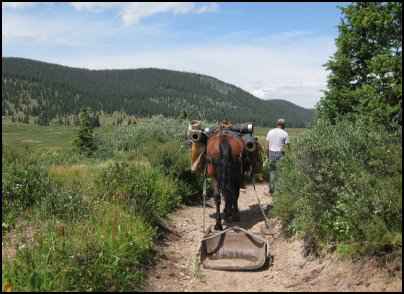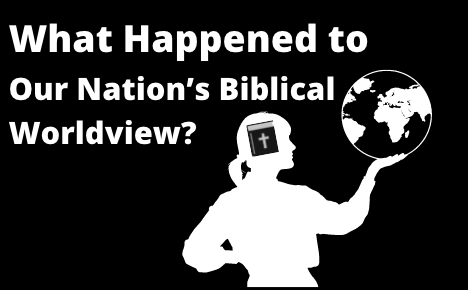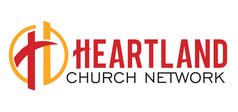|
Before I shift our focus away from the Parable of the Ten Virgins in Matthew 25 and the principle of personal responsibility, I need to point out that Learned Helplessness exists; it is alive and well in our culture; we need to understand the impact it is having. Although I was aware of the general concept, it wasn’t until I read Henry Cloud’s book Boundaries for Leaders that I actually came to grips with the individual AND cultural prominence and devastating impact of Learned Helplessness. As I read the book, I paused after reading Chapter 6 to reflect on my visits to impoverished West Africa. As Cloud described the impact Learned Helplessness has upon individuals and businesses, I thought, “I’ve seen it impact a whole nation: Niger!” Our daughter, Emily, was serving there as a missionary among the Fulani—a seminomadic people group who call themselves the “Bringers of Islam.” Having grown up in a semi-arid rural region of the US, I was able to relate in many ways to the agrarian life of the Fulani. However, I was not prepared for a world that looked just like the one described in Bible times. I had read in Numbers about millstones and mortars being used by the Israelites as they ground the manna. I didn’t see a single millstone—a little more high-tech—but I did see a lot of mortars being used to pound their millet. The “Why don’t they ______” questions just kept pouring into my mind. I noticed that there wasn’t a single inch (let alone kilometer) of railroad or interstate in the whole nation. There was only one bridge across the Niger River, and most of the roads that do exist are so rough that sometimes it’s better to drive on the side of the road. I acknowledge that Niger is a nation with limited natural resources, and I admit that I grew up in a huge energy-producing state—Wyoming with its oil, natural gas, and coal. But I also know that to a Wyoming native, water rights are more valuable than mineral rights. You can’t live long without water and neither can your cattle or crops. So what grabbed my attention the most was the fact that I did not see a single dam (called a stock pond or tank in some regions of the US) of any kind. I recalled that when my parents bought part of a huge ranch that was being broken up and sold, the first thing we had to do was to build two dams—one for the east canyon pasture and one for the west canyon pasture—we were fortunate that the canyon already had a dam. Without water for the cattle, those grazing areas would be worthless. I also remember hearing my grandfather talk about working on a crew that built some of the early highways in the Black Hills. He talked about using a horse-drawn slip—talk about SLOW HARD WORK! (If you don’t know what a slip is you can hit this link: Horse Power). I began to think about how all of the early dams in Wyoming were built using a slip, and I asked myself, Why haven’t the people of Niger built dams? The dams would provide water for themselves, their livestock, their crops, and minimized flash flooding. Yes, it is SLOW HARD WORK, but water is LIFE! All of these thoughts flooded through my mind as I pondered the concept of Learned Helplessness, how it had consumed an entire nation, and the devastating human toll that it was taking. I wondered, “How do you begin to help people whose lives are so destitute?” I’ll address that question in the following articles, but for today I want you to understand what Learned Helplessness is, and convince you to see that it does exist in our culture. In fact, I would suggest that it has a direct impact on how you help someone acknowledge their need to accept personal responsibility and in some ways help them accept the Gospel that provides eternal life. As I continued to read Boundaries for Leaders, my thoughts shifted from Niger to the small struggling churches in our network--churches where people have lost hope and moved into a survival or fortress mindset. Cloud describes Learned Helplessness this way: A positive and optimistic brain is a productive, energized brain ready to explore new ideas and to grapple with hard problems….[by contrast] Learned Helplessness is a change in the software of the brain that occurs when one of the most fundamental laws of the universe is interrupted in our lives: the law of cause and effect…in infancy I can cry for food; in adulthood I can get a job to buy a meal…if you feel lonely, you can call someone and go to dinner together. The operating principle we learn is: do something good and something good happens to you…We depend on this law every day…It really works until we find ourselves in a situation where we are continuously affected negatively, and we have absolutely no control over the things that are affecting us. Cloud quotes one researcher who has identified a downward spiraling three-step pattern that leads to Learned Helplessness he calls the “three P’s.” They are:
But even before COVID, entrenched Learned Helplessness existed in our nation. Stop and think about those who grew up in a multi-generational impoverished family. Regardless of what the root cause was, the children are exposed to Learned Helplessness from day one. Now let me make it very personal. Stop and think about where your immediate family is today as you seek to survive in our COVID world. My guess is you’re also dealing with a handful of other life issues. What phase is your family in today: Personal, Pervasive, or Permanent? Taking things one step further, stop and look at your own life. Can you describe a season when your thoughts moved from Personal to Pervasive and then to Permanent as you experienced a very difficult season? It might be that what you thought was mild depression was really a slide towards Learned Helplessness. Again, let me remind you that before you can address a problem, you must admit it exists and even more importantly you must be able to correctly identify the problem. You don’t fix pain caused by a broken arm with antacids. We will begin to unpack how we can learn to deal with Learned Helplessness next week. Yours in Christ, Mark R. Elliott, AMS
2 Comments
I’m sure some of you are questioning my interpretation of the three parables in Matthew 25: Parable of the Ten Virgins, Parable of the Talents, and Parable of the Judgment of the Nations. I have stated that they provide foundational Biblical Worldview principles that speak to our responsibility to care for ourselves, and those who have genuine needs. I would also suggest that principles found in these parables are at the core of what has been called the Protestant Work Ethic—our responsibility to steward well all that God has entrusted to us.
To address those legitimate questions, let me lean into a fundamental principle of Biblical interpretation: let the Bible interpret the Bible. If I find a principle in one passage, I should be able to find it in other verses. If I can’t then I am probably misunderstanding the passage. The Bible has a lot to say about personal responsibility and the basic idea of having a personal work ethic. Here is a sampling of those passages:
Yours in Christ, Mark R. Elliott, AMS When I was a kid the TV shows and most of the books we read assumed a Biblical Worldview and contained a working knowledge of the Bible itself. I’m reminded of that whenever I watch reruns of old westerns—they always provided a positive moral message. I recall working on a sermon PowerPoint one Saturday morning with the TV running in the background. Between my sloth on the computer and the distraction of the shows, I was able to watch part of three different programs: Daniel Boone, Have Gun Will Travel, and the Guns of Will Sonnet. All three had either a direct quote from the Bible or a reference to a Bible story. And in each case the storyline provided a positive moral lesson to be learned. I also remember reading Aesop’s Fables in school. How many of you have even heard of them? My guess is most kids today have never heard of them. One of my favorites was the story of the “Ants and the Grasshopper.” The original read like this: One bright day in late autumn a family of Ants were bustling about in the warm sunshine, drying out the grain they had stored up during the summer, when a starving Grasshopper, his fiddle under his arm, came up and humbly begged for a bite to eat. “What!” cried the Ants in surprise, “haven’t you stored anything away for the winter? What in the world were you doing all last summer?” “I didn’t have time to store up any food,” whined the Grasshopper; “I was so busy making music and before I knew it the summer was gone.” The Ants shrugged their shoulders in disgust. “Making music, were you?” they cried. “Very well; now dance!” And they turned their backs on the Grasshopper and went on with their work. This fable sounds much like the Parable of the Ten Virgins told by Jesus: Then the kingdom of heaven shall be likened to ten virgins who took their lamps and went out to meet the bridegroom. Now five of them were wise, and five were foolish. Those who were foolish took their lamps and took no oil with them, but the wise took oil in their vessels with their lamps. But while the bridegroom was delayed, they all slumbered and slept. Unfortunately in a culture without a Biblical Worldview the following modern-day adaptation of Aesop’s Fable of the Ants and the Grasshopper can happen in real life: The ant worked hard in the withering heat all summer long, building his house and laying up supplies for the winter. The grasshopper thought the ant was a fool and laughed and danced and played the summer away. If the contemporary version of Aesop’s Fable is more common in our day-to-day life than the original version, what happened? Specifically, “What happened to our nation’s Biblical worldview?” Several years ago, I was wrestling with this question and cried out to God in prayer. Needless to say, I did not appreciate the prompting I received from the Holy Spirit: “Yes it is true, and it happened on your watch!” I cried out to God in prayer and made a commitment to constantly strive to be part of the solution rather than part of the problem.
I would ask that you honestly evaluate what is happening in your life, your family, your church, your community, our region, and our nation. Is it true that we are reflecting the values of the world more than we are living the values of God? If you agree with me that it is true, then will you join me in a personal commitment to better understand the meaning of a Biblical Worldview? As we see and hear more clearly from God’s word, will you join me in making a personal commitment to be more of the solution than part of the problem with each day that God gives you life and breath? I’m praying for a great spiritual awakening for our nation, knowing that God also purifies His people through persecution. Yours in Christ, Mark R. Elliott, AMS Most of us have heard the old preacher story that is told to remind us that from generation to generation (both in family and organizational life) we pass along process better than purpose. A little girl was helping her mom prepare the Christmas meal. When mom cut the ham in two and placed it in the pan, she asked her, “Mom, why do you cut the ham?” Her mom’s response was, “Because that’s what my mom did.” Grandma was in the next room, so the little girl ran and asked her, “Grandma, why did you cut the ham in two before you put it in the pan?” And grandma said, “Because that’s what my mom did.” As luck would have it great-grandma was also there, so out came the question again. “Great-grandma, why did you cut the ham in two?” The reply this time was different, “I didn’t have a pan big enough to hold a whole ham, so I had to cut it in two and put it into two pans.” As an astute observer of the American culture, I would suggest that as a whole, we have failed to retain the purpose, basic understanding and balance behind three critical Biblical principles in our culture: responsibility, authority, and accountability. These principles are found in the trilogy of parables in Matthew 25. I would suggest that these three fit together as much as the three parables in Luke 15: lost sheep, lost coin, and lost sons. In what we call the Olivet Discourse as recorded in Matthew 24, Jesus bridges a discussion of the destruction of the temple and the end times and the ensuing parables of the Kingdom in Matthew 25 by stating in 24:45-51: Who then is a faithful and wise servant, whom his master made ruler over his household, to give them food in due season? Blessed is that servant whom his master, when he comes, will find so doing. Assuredly, I say to you that he will make him ruler over all his goods. But if that evil servant says in his heart, ‘My master is delaying his coming,’ and begins to beat his fellow servants, and to eat and drink with the drunkards, the master of that servant will come on a day when he is not looking for him and at an hour that he is not aware of, and will cut him in two and appoint him his portion with the hypocrites. There shall be weeping and gnashing of teeth. Much like Jesus does moments before the ascension recorded in Acts 1:4-11, He again redirects the disciples questions, concerns, and focuses on the end times to the purpose God has for them. And being assembled together with them, He commanded them not to depart from Jerusalem, but to wait for the Promise of the Father, “which,” He said, “you have heard from Me; for John truly baptized with water, but you shall be baptized with the Holy Spirit not many days from now.” Therefore, when they had come together, they asked Him, saying, “Lord, will You at this time restore the kingdom to Israel?” And He said to them, “It is not for you to know times or seasons which the Father has put in His own authority. But you shall receive power when the Holy Spirit has come upon you; and you shall be witnesses to Me in Jerusalem, and in all Judea and Samaria, and to the end of the earth.” I would suggest that the parables of Matthew 25 provide clarity and specifics for what “a faithful and wise servant” will be doing as they await the return of their Lord and Master. We too should take heed to what the parables say and more importantly strive to do what they say because, “Blessed is that servant whom his master, when he comes, will find so doing” (Matt. 24:45-46).
I will come back in subsequent weeks and speak in depth to each of the parables, but for today, let me lay out the big picture—a 30,000-foot view. The three parables speak to various responsibilities that we individually and culturally have been given. The Parable of the Ten Virgins (25:1-13) clearly tells us that we have the primary responsibility to provide for our own needs. The Parable of the Talents (25:14-30) speaks to the responsibility we have to steward wisely all that God gives us. And the Parable of the Judgment of the Nations (31-46) addresses the responsibility we have to care for those in our “culture” who cannot care for themselves. A quick clarification, the Greek word translated as “nations” in most English translations is better translated as “ethnic group,” “culture,” or “people group.” It does not refer to a geopolitical ethnically diverse nation, but to how each specific ethnic group or cultural group cares for its own. When I speak of the principle of “authority” I am referring to the resources, abilities, and decision-making power we have been given to meet our responsibilities. In the Parable of the Ten Virgins, we see five who knew what would be happening and made the appropriate preparations using their knowledge and resources. We also see five who chose not to prepare to meet their responsibilities in the given situation in a timely manner—they were called foolish. We see a similar picture in the Parable of the Talents as two of the servants acted responsibly with the resources they were given while one did not. And in the Parable of the Judgment of Nations (ethnic groups) we see two primary responses. One group had wisely stewarded their resources and were not only able but accepted the responsibility to care for those in need. And one group either didn’t have the resources because of poor stewardship or were not willing to accept the responsibility to care for those who had genuine needs. The principle of personal responsibility is one that our culture too often ignores. You can’t read the three parables in Matthew 25 and not see a stark contrast between what happens to those who accept responsibility and steward wisely their authority and those who don’t. Not only were the five virgins who failed to prepare called foolish, but when they showed up to the wedding feast late saying “Lord, Lord, open to us!” they heard, “Assuredly, I say to you, I do not know you” (25:11-12). The servant who didn’t accept his responsibility nor steward wisely the talent given him was called “wicked and lazy,” and his one talent was taken from him and given to the servant who now had ten talents. But even worse, the master said, “Cast the unprofitable servant into the outer darkness. There will be weeping and gnashing of teeth.” In the Parable of the Judgment of Ethnic Groups, the self-focused group heard, “Depart from Me, you cursed, into the everlasting fire prepared for the devil and his angels: for I was hungry and you gave Me no food; I was thirsty and you gave Me no drink; I was a stranger and you did not take Me in, naked and you did not clothe Me, sick and in prison and you did not visit Me.” Maybe you have never looked at the parables of Matthew 25 in this manner. Maybe the way I am defining and describing the principles of responsibility, authority, and accountability are new to you. Let me encourage you to read Matthew 24 and 25 and keep in mind that God is more interested in how well we are fulfilling our purpose than He is about how well we know the signs of the end times. Yours in Christ, Mark R. Elliott, AMS |
AuthorRetired in April 2022, Mark R. Elliott served as a Director of Missions (Associational Mission Strategist) in Western Iowa and Eastern Nebraska for almost three decades. He is a strong advocate for obedience and Biblically based disciple making. As such, he knows that making healthy disciples requires Christian leaders to be constantly pursuing spiritual maturity—be lifelong learners. Because of the time constraints of ministry, most pastors focus their reading list on resources that assist them in teaching and preaching the Word of God. As such, books focusing on church health, leadership development, and church growth tend to find their way to the bottom of the stack. With that reality in mind, Mark has written discussion summaries on several books that have helped him to personally grow in Christ and that tend to find themselves on the bottom of most pastor’s stack. Many pastors have found them helpful as they are able to more quickly process great insights from other pastors and authors. Archives
April 2022
Categories |
Looking for something? |
© COPYRIGHT 2024. ALL RIGHTS RESERVED.
|







 RSS Feed
RSS Feed
